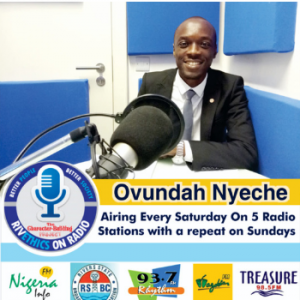
Greetings to our kind-natured people of Rivers State and welcome to another episode of RivEthics on Radio, our character-building weekend show. Please remember that suicide is not an option at all. In trying to kill yourself, you kill those left behind who truly love you. This episode is in Commemoration of the United Nations’ World Suicide Prevention Day, 2019.
Close to 800 000 people die by suicide every year. In addition, there are more than 16 million suicide attempts each year. Suicides and suicide attempts have a ripple effect that impacts on families, friends, colleagues, communities and societies.
Suicides are preventable. Much can be done to prevent suicide at individual, community, State and National levels. The following are the warning signs of suicide or indicators that a person may be in acute danger and may urgently need help:
• Talking about wanting to die or to kill oneself
• Looking for a way to kill oneself
• Talking about feeling hopeless or having no purpose
• Talking about feeling trapped or being in unbearable pain
• Talking about being a burden to others
• Increasing the use of alcohol or drugs
• Acting anxious, agitated, or reckless
• Sleeping too little or too much
• Withdrawing or feeling isolated
• Showing rage or talking about seeking revenge
• Displaying extreme mood swings
Much can be done to prevent suicide. The WHO recommends four key interventions which have proven to be effective:
• restricting access to means of afflicting deadly personal harm.
• helping young people develop skills to cope with life’s pressures.
• early identification and management of people who are thinking about suicide or who have made a suicide attempt, keeping follow-up contact in the short and longer-term.
• working with the media to ensure responsible reporting of suicide.
Collectively, the World Health Organisation’s approach to suicide prevention is known as LIVE LIFE (leadership, interventions, vision and evaluation). This approach is the basis on which comprehensive national suicide prevention strategies should be developed, as well as personal, family, community and State.
Our guest speaker today is Dr Ovundah Nyeche, a Medical Doctor, Author and Public Speaker. He will be sharing with us his insight on the topic. Please enjoy the episode.
Our caring Rivers people, remember to always let your manners speak for you.
God bless and keep you and your families. And God bless Rivers State
Her Excellency,
Hon. Justice (Mrs) Eberechi Suzzette Nyesom-Wike,
The Wife of His Excellency,
Nyesom Ezenwo Wike CON. GSSRS. POS
You can also listen to and download the Pidgin English version of this Episode below
